How to Get Comfortable Cooking without a Recipe
Here are a couple of tips and tricks to help you get more comfortable in your own kitchen. And get one step closer to being the master chef of your dreams!
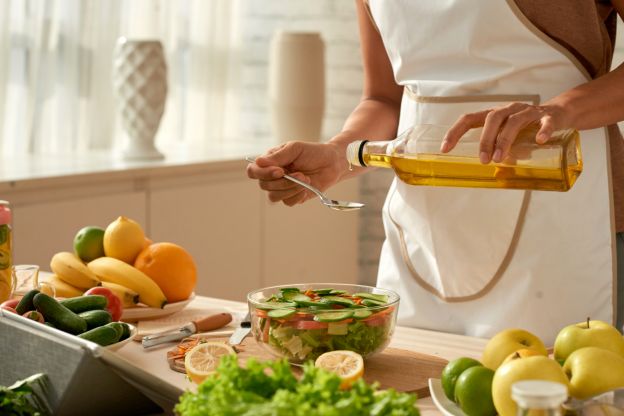
Stick to What You Know
Figure out what flavors you love, and rely on what you know goes well together when you're putting together your next meal. Everyone's taste is different, but you'll find you're more at ease cooking with ingredients that are familiar to you. For example, if you normally gravitate toward fresh Mediterranean-style cuisine, stock up on olive oil, tomatoes, parsley, healthy grains, chickpeas and lemons. If you love Italian food, stick to fresh or canned tomatoes, butter, olive oil, parmesan, pasta and fresh vegetables. If you're a fan of quick and easy stir fries, make a big batch of homemade sauce to have on hand, and simply switch up the veggies, starch and proteins. Once you've defined your preferred cooking style, you'll know what ingredients you need and can experiment accordingly.
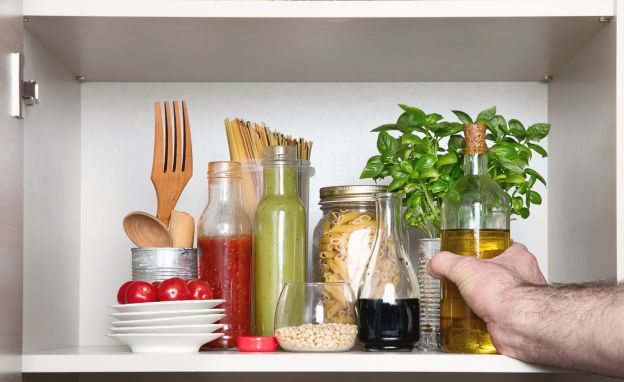
Keep Your Kitchen Well-Stocked
Speaking of essential ingredients, there are some staples we recommend for everyone. If you've got those, then you can pretty much whip up a satisfying meal by simply adding hints of things throughout the cooking process. Staples you should consider always having:
- Olive oil, vinegar, garlic, onions, salt and pepper, plus any of your preferred spices
- Pasta, rice, grains, butter, milk (or your favorite plant-based alternative), rice, and eggs
- Canned beans, tomatoes, broth, coconut milk
Depending on your diet, keep the proteins of your choice in the fridge, freezer or pantry (if shelf-stable).
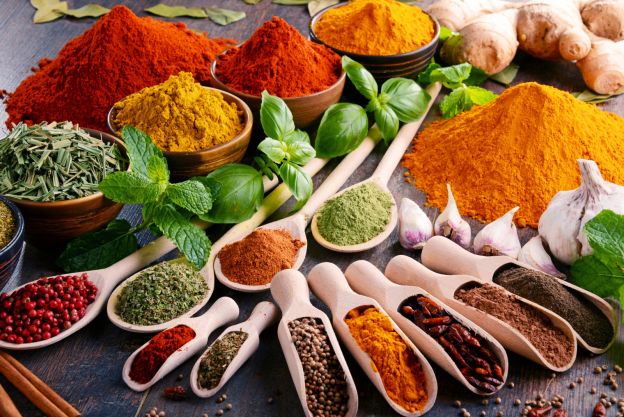
Season like Your Life Depends on It
Seasoning is everything. If you're boiling pasta, remember to liberally salt the cooking water. For slow-cooked dishes, seasoning at the end usually works best. Before searing or grilling your steak, be generous with the salt and pepper. These little tips will help to ensure that all the flavors of your food are enhanced while it's being cooked. And remember taste, taste, taste! You can't know if a dish is properly seasoned without tasting it.
If you aren't comfortable using loads of spices just yet, try experimenting with them one by one. For example, turmeric is a great addition to curries, but it can also be delicious in smoothies, too. And don't shy away from fresh herbs, which can be just as effective as spices! Taste as you go and add your seasonings little by little until you reach a flavor profile that suits you.

Learn the Basics
Make sure you know the basics of cooking, which will help you avoid any undesirable surprises with your recipes. Knowing these off the top of your head will make it easier for you to throw something together without a recipe and actually feel confident about what you are doing. Some basic concepts you should be familiar with include:
- How long to cook grains (always check the package instructions, as cooking times can vary)
- What temperature specific proteins should be cooked to for safe consumption (or how to tell if it's done)
- How to steam, bake, saute or grill foods
- How to make a roux for the base of your sauces
- How to properly chop, slice and cut different types of foods
Most of these things are pretty simple to remember, especially as you get more comfortable with cooking, but there's no harm in keeping notes in the kitchen with certain tips, if necessary.

Have Fun with It
When you're cooking without a recipe, be open to experimentation. If you've got a recipe down, then you could always play around by subbing certain ingredients. For example, vegetable oil may be substituted for butter in some baked goods (or in sauteed dishes). Or if you normally cook with olive oil, you can put an Asian spin on your dishes by swapping in sesame oil and soy sauce. You could also use your favorite recipes as a starting point to jump into your very own new recipe. The options are endless, so keep an open mind and don't be afraid to mess up—it's all a learning process.
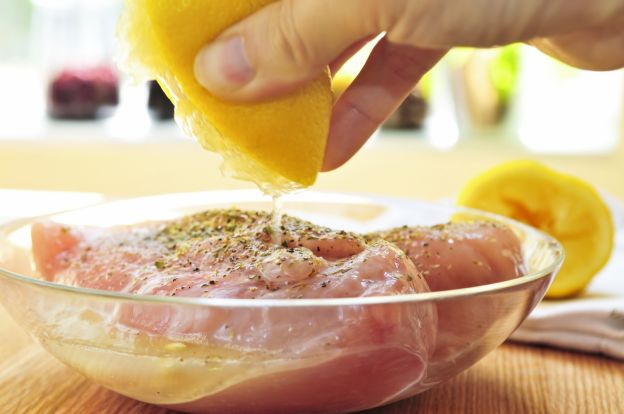
Keep It Simple
If you're not fully comfortable in the kitchen, don't overwhelm yourself by attempting a crazy complex dish without a recipe. Stick to what you know, and keep it simple. Many respected and Michelin-starred chefs believe that one well-prepared dish with few ingredients is better than a mishmash of flavors that aren't in sync. Trust your instincts, and keep tabs on your meal by tasting as you go.
If you're feeling overwhelmed about the idea of starting with a completely blank slate, you can always attempt to prepare a recipe you've made before, without looking it up. That way you have a clear end goal, but you are still allowing your senses to drive you and have a little fun in the kitchen.
Hungry for more? Here are 10 Essential Tips to Dining Out on a Budget!
More steaming articles
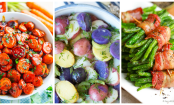 Hop into Flavor: 99 Effortless Easter...
Hop into Flavor: 99 Effortless Easter...
 Easter Sweets Showdown: Ranking the...
Easter Sweets Showdown: Ranking the...
 How to Serve Wow-Worthy Holiday...
How to Serve Wow-Worthy Holiday...
Chef Tips and Tricks
Do you put the pasta in without waiting for the water to boil? Add oil? Forget the salt?
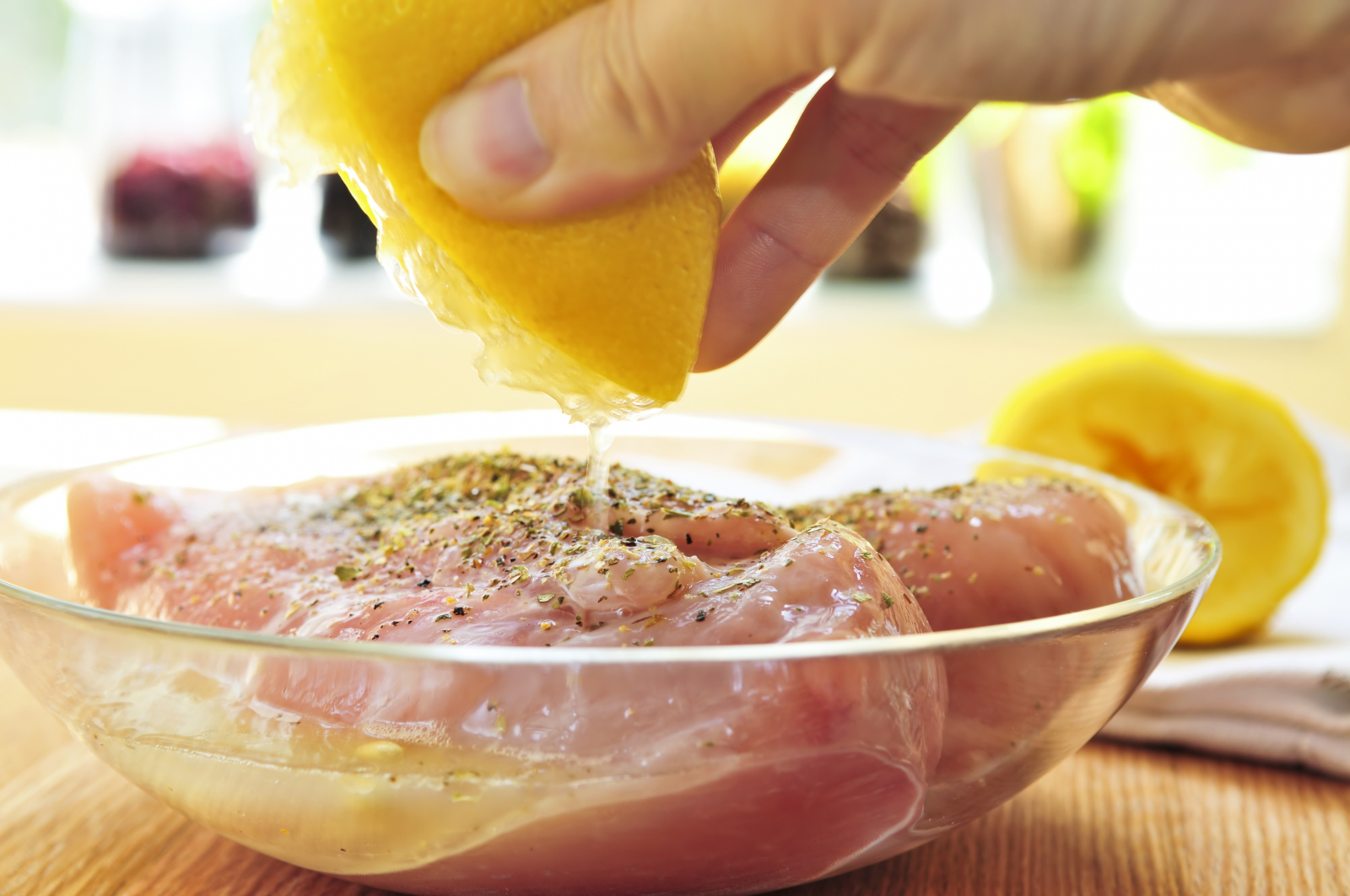

Comment on this article